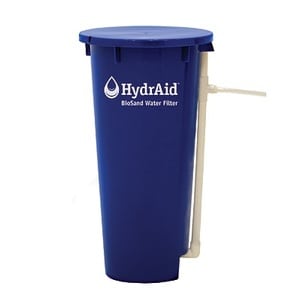
Agriculture
January 10, 2024
Hydraid® BioSand Filter
Read SolutionImplemented by
NativeEnergy
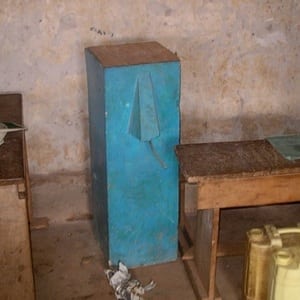
Updated on January 10, 2024
·Created on August 27, 2015
BushProof biosand filters are a slow sand filtration product for household use.
BushProof provides trainings to make Biosand filters, which are a slow sand filtration product for household use. Biosand filtration is an appropriate and low-cost method for household water treatment and is proven to reduce the incidence of diarrhoea.
Target SDGs
SDG 6: Clean Water and Sanitation
Market Suggested Retail Price
$1,687.00
Target Users (Target Impact Group)
Household
Distributors / Implementing Organizations
BushProof
Competitive Landscape
Direct competitors include PurAll Water Purification, DHAN Biosand Filters, Ideas at Work Biosand Filter, and Hydraid® BioSand Filter.
Countries
Afghanistan, Congo (Brazzaville), Kenya, Madagascar, Pakistan, Sri Lanka, Sudan, Uganda
Manufacturing/Building Method
Individual production by artisans and trained builders using locally available materials such as sand, water and cement. BushProof sells metal moulds for casting concrete housings in which the biosand is placed. There are also guidelines for producing moulds.
Intellectural Property Type
Open-source
User Provision Model
BushProof Biosand filters are sold through trained artisans and builders. BushProof trains individuals to make the systems and sells the moulds required to manufacture the filters.
Distributions to Date Status
As of March 2004, BushProof has sold 670 units in Madagascar, Africa: 600 for rural households and 70 in urban households.
Target use case
Household use
Manufacturer-specified flow rate (L/hr)
25
Bacteria reduction
99% E. Coli
Protozoa reduction
Unknown
Virus reduction
Unknown
Heavy metals and/or arsenic reduction
Unknown
Maximum recommended influent turbidity level (NTU)
0-10 ( Tested under 176.0 – 360.0)
Effluent turbidity levels (NTU)
Filters treating highly turbid source water (176.0 – 360.0 NTU) were observed to remove between 98.7 and 99.8% of turbidity.
Manufacturer-specified volume between cleaning (L)
? 20
Material of construction
Concrete (cement, sand, gravel)
Design Specifications
BushProof Biosand filters work according to the principles of a general BioSand Filter (BSF) whereby layers of sand and gravel are housed in a concrete container. The water level is maintained above the sand layer by setting the height of the outlet pipe. This shallow water layer allows a bioactive layer to grow on top of the sand, which contributes to the reduction of disease-causing organisms. A diffuser plate with holes in it is placed on the top of the sand layer to prevent disruption of the biolayer when water is added to the system. To use the BSF, users pour water into the BSF, and collect finished water out of the outlet pipe into a bucket.
The BushProof Biosand Filters relies on intermittently operated BSF technology. In this design, the drain pipe is raised 1-8 cm above the sand level, which ensures that the water level is just above the sand. Even when water is not continually added to the filter, oxygen can still permeate into the water to reach the bioactive layer by diffusion across this shallow layer of standing water.
When the flow rate becomes unacceptably low, the filter can be cleaned by removing accumulated dirt from the top few centimeters of sand. There are several ways to do this, but all disturb the biological layer which results in less effective filtration for some time. Some methods are less disruptive than others.
Technical Support
BushProof-trained artisans provide technical support, and an instruction booklet can be accessed online.
Replacement Components
All materials are locally available and can be sourced by the builder.
Lifecycle
About 4 years according to research conducted by Medair, Kenya
Manufacturer Specified Performance Parameters
Intermittently-operated slow sand filters can be made as small units that supply clean water for a family. Under ideal conditions, a biosand filter of this size produces 1 liter of clean water per minute. Even at a much slower flow rate, however, the filter can be practical. A filter that fills a 20-liter jerry can in two hours can be convenient to a family, even though this equals a flow rate of only 0.16 liters per minute.
Vetted Performance Status
Safe Household Drinking Water via Biosand Filtration Pilot Project Evaluation and Feasibility Study of a Biosand Pitcher Filter Water, advocacy, sanitation and hygiene: Lessons learnt from Tearfund’s global water, advocacy, sanitation and hygiene programme 2007–2012. Written by Murray Burt and Bilha Joy Keiru.
Safety
Concrete filters can be heavy and difficult to move and transport.
Complementary Technical Systems
Safe water storage containers.
Academic Research and References
Significant research has been conducted on BSF technology. A comprehensive list is available via CAWST.
Additional examples include: Sangya-Sangam K. Tiwari, et al. Intermittent slow sand filtration for preventing diarrhoea among children in Kenyan households using unimproved water sources: randomized controlled trial. Tropical Medicine & International Health Volume 14, Issue 11, pages 1374–1382, November 2009
Michael Lea. Clearinghouse, Low-cost Water Treatment Technologies for Developing Countries, Ottawa, Ontario, Canada. Biological Sand Filters: Low-Cost Bioremediation Technique for Production of Clean Drinking Water Current Protocols in Microbiology 1G.1.1-1G.1.28, May 2008
“Track Record,” BushProof, 02-Oct-2013. Available: https://bushproof.com/about/track-record/
“Household Biosand Filtration,” BushProof, 04-Oct-2013. Available: https://bushproof.com/products/trainings/household-biosand-filtration/
“Goal 6,” Sdgs.un.org. Available: https://sdgs.un.org/goals/goal6
Adriaan, E. Fewster, B. Org, and A. Mol, Biosandfilter.org, 2007. Available: https://www.biosandfilter.org/wp-content/uploads/2017/05/BioSandFilter_Mould_Construction_Guidelines-1.pdf
“Downloads,” Biosand filter, 09-May-2017. Available: https://biosandfilter.org/downloads/
Mit.edu. Available: https://web.mit.edu/watsan/Docs/Student%20Theses/Nepal/Pincus2003.pdf
“Sand as a filter media,” Biosand filter, 22-May-2017. Available: https://biosandfilter.org/biosand-filter/filter-media/sand-as-a-filter-media/
“Operation & Maintenance,” Biosand filter, 22-May-2017. Available: https://biosandfilter.org/biosand-filter/operation-maintenance/
Biosand filter. Available: https://biosandfilter.org/biosandfilter/files/webfiles/Field_Sand_Sieve_Analysis_Instructions.pdf
Mit.edu. Available: https://web.mit.edu/watsan/Docs/Student%20Theses/Ghana/2009/Thesis%20-%20Final,%20Clair%20Collin,%205-15-09.pdf
Compliance with regulations
Although Biosand filters have been tested to reduce pathogen load in drinking water, they do not consistently comply with WHO standards for drinking water.
Evaluation methods
Field evaluations. Examples include, Medair Kenya – Biosand filter project evaluation report Results showed that filters were still performing very well, producing drinking water of acceptable purity to the majority of households that bought one 4 years prior.
Other Information
In 2005, BushProof received the World Bank global Development Marketplace award.

Agriculture
January 10, 2024
Implemented by
NativeEnergy
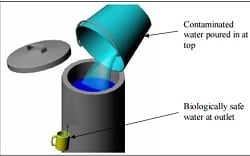
Agriculture
January 10, 2024
Implemented by
Ideas at Work

Agriculture
January 10, 2024
Implemented by
Dr. David Manz, University of Calgary
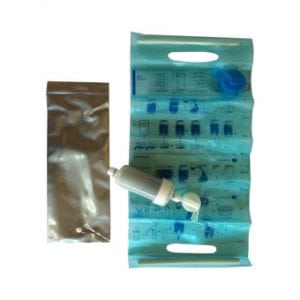
Agriculture
December 29, 2023
Implemented by
RealRelief
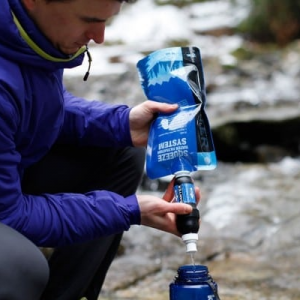
Agriculture
December 29, 2023
Implemented by
Sawyer
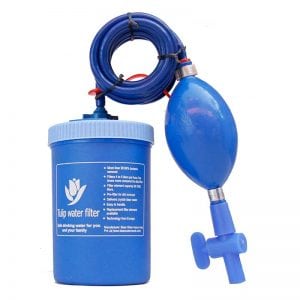
Agriculture
December 13, 2023
Implemented by
Basic Water Needs
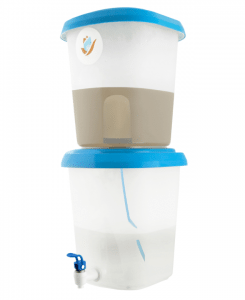
Agriculture
January 4, 2024
Implemented by
Basic Water Needs
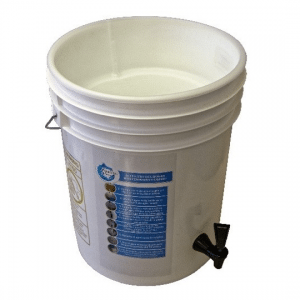
Agriculture
December 27, 2023
Implemented by
Aqua Clara International
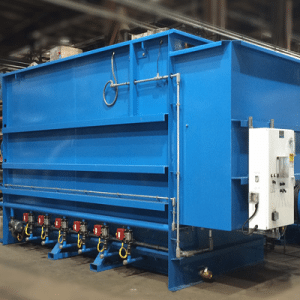
Agriculture
January 11, 2024
Implemented by
Aqua-Aerobic Systems, Inc.
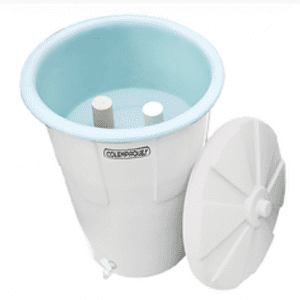
Agriculture
December 6, 2023
Implemented by
colempaques
Have thoughts on how we can improve?
Give Us Feedback